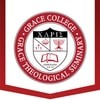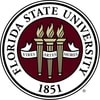Best Online Higher Education Colleges
Get detailed information about best online Higher Education colleges and their tuition, accreditation, career prospects, scholarships, admission details and much more
Online Higher Education Colleges
Higher education is a final stage of formal learning that occurs after completion of secondary education. This program includes teaching, research, and extracting applied work. This course has a wide range of varieties that a student can pursue. By taking higher education you can take up leadership roles in whichever field you pursue your higher education in.
There are many accrediting agencies which offer accreditation to colleges which offer this course. Few accrediting agencies are:
-
National Council for Accreditation of Teacher Education (NCATE)
-
National Association of Schools of Music Commission on Accreditation (NASM)
- Teacher Education Accreditation Council (TEAC)
There are varieties of streams available under higher education. Few of them are accounting and finance, aeronautical engineering, agriculture and forestry, anatomy and physiology, etc.
An Associate’s degree requires 60-65 credits and takes 2 years to be completed. This higher education program can just be a startup in a student’s educational journey.
A Bachelor’s degree requires 120-125 credits and takes 4 years to be completed. This program provides students with knowledge about the higher education.
A master’s degree requires 35-60 credits and takes 2 years to be completed. This higher education program improves the student’s ability as well as knowledge in fields like educational leadership, teaching, education technology, administration, etc.
A Doctorate’s degree requires 48-75 credits and takes 2 -4 years to be completed. Taking up a research program in this field can help the students understand the research design, program evaluation, analysis of qualitative and quantitative data, etc.
A minimum of 2.0 to 3.0 GPA is required to get into your higher education degree in colleges which are accredited.
The higher education program allows students to get a deeper knowledge of a particular subject. Taking up your higher education in any of the fields can enhance your leadership qualities, managerial qualities, decision-making capabilities, and problem-solving skills in that particular field.
Gratz College
Philadelphia, Pennsylvania
Institution Type: Private Not-For-Profit
Higher Education Accreditation: Request Info
Total Programs in Higher Education (1)
1
Doctorate Program
Grace College and Theological Seminary
Winona Lake, Indiana
Institution Type: Private Not-For-Profit
Higher Education Accreditation: Request Info
Average Federal Student Loans awarded: $6,658
Average Student Loans Awarded: $7,069
Total Programs in Higher Education (1)
1
Masters Program
Cleveland State University (CSU)
Cleveland, Ohio
Institution Type: Public
Higher Education Accreditation: Request Info
Average Federal Student Loans awarded: $5,570
Average Student Loans Awarded: $6,372
Total Programs in Higher Education (1)
1
Masters Program
Florida State University (FSU)
Tallahassee, Florida
Institution Type: Public
Higher Education Accreditation: Request Info
Average Federal Student Loans awarded: $6,442
Average Student Loans Awarded: $7,122
Total Programs in Higher Education (1)
1
Graduate Certificate Program
University of Colorado Boulder
Boulder, Colorado
Institution Type: Public
Higher Education Accreditation: Request Info
Average Federal Student Loans awarded: $5,378
Average Student Loans Awarded: $8,036
Total Programs in Higher Education (1)
1
Masters Program
Abilene Christian University (ACU)
Abilene, Texas
Institution Type: Private Not-For-Profit
Higher Education Accreditation: Request Info
Average Federal Student Loans awarded: $5,758
Average Student Loans Awarded: $11,640
Total Programs in Higher Education (2)
2
Masters Programs
Institution Type: Public
Higher Education Accreditation: Request Info
Average Federal Student Loans awarded: $5,081
Average Student Loans Awarded: $5,618
Total Programs in Higher Education (8)
3
Doctorate Programs
2
Masters Programs
3
Bachelors Programs
Ball State University
Muncie, Indiana
Institution Type: Public
Higher Education Accreditation: Request Info
Average Federal Student Loans awarded: $5,871
Average Student Loans Awarded: $7,671
Total Programs in Higher Education (3)
1
Doctorate Program
1
Masters Program
1
Graduate Certificate Program







